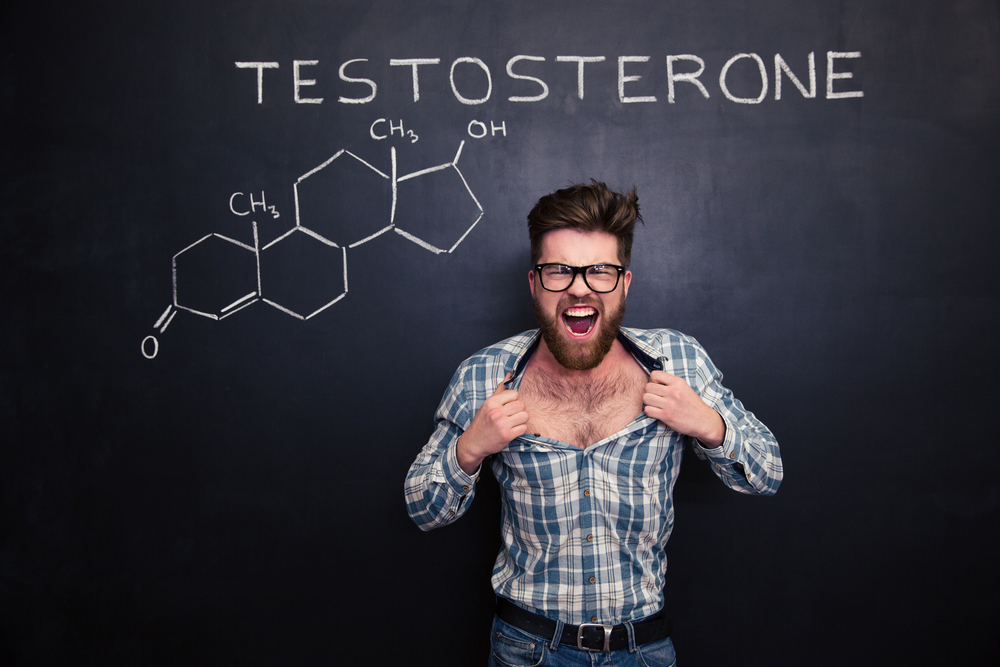While present in males and females, testosterone is the primary male sex hormone produced in the male gonads or testicles. Testosterone is responsible for stimulating androgenic or virilizing effects or developing male sexual organs and their functions, such as sperm production. Androgenic effects also include the development of secondary sexual characteristics, generally associated with males, such as deepening of the voice and prominent hair growth on the face, armpits, chest, and pubic area.
Aside from androgenic or virilizing effects, testosterone also has anabolic effects both for males and females, such as increased muscle mass and growth and bone density. Other effects of normal testosterone levels include the production of adequate red blood cells. Having healthy muscles and bones indicates adequate energy levels that lead to an overall sense of wellbeing.
To experience testosterone’s expected full effects, men must have the normal range of morning testosterone, between 300 and 1,000 nanograms per deciliter (ng/dL). Testosterone levels lower than 300 ng/dL indicate a deficiency, according to the clinical practice guideline of The Endocrine Society.
Testosterone deficiency
Low testosterone in men is called male hypogonadism or low-T. This is a condition in which the testes or testicles, the male reproductive gland or gonad responsible for producing this hormone, do not generate enough amounts.
 Testosterone levels gradually decrease as men age, usually by one percent every year, starting at around 30 years. While testosterone levels are expected to decline as men get older naturally, there has been an increasing number of testosterone deficiency cases in younger men below 30 years old. This has been particularly prevalent in younger male adults who have either acquired or congenital diseases or conditions such as diabetes, obesity, and illicit use or abuse of opioids or anabolic steroids.
Testosterone levels gradually decrease as men age, usually by one percent every year, starting at around 30 years. While testosterone levels are expected to decline as men get older naturally, there has been an increasing number of testosterone deficiency cases in younger men below 30 years old. This has been particularly prevalent in younger male adults who have either acquired or congenital diseases or conditions such as diabetes, obesity, and illicit use or abuse of opioids or anabolic steroids.
Insufficient testosterone levels lead to the following symptoms:
- Decreased libido or sex drive
- Erectile dysfunction
- Fatigue or low energy
- Decrease in muscular mass or strength
- Increase in body fat
- Decrease in bone density or osteoporosis
- Mood swings or irritability
- General malaise or lowered overall sense of wellbeing
Testosterone deficiency, in general, poses several symptoms that affect the overall quality of life; hence, maintaining normal testosterone levels is necessary to be healthy.
Medical treatment
The most common medical intervention for low testosterone levels is testosterone replacement therapy or androgen replacement therapy which can be administered through various methods. Testosterone can be taken orally in capsule form or applied through topical or transdermal treatments such as creams, gels, or patches. Testosterone can also be inserted inside the nose (intranasal) in the form of gel or attached to the upper gums inside the mouth (buccal) in the form of patches. Testosterone can also be given through intramuscular injections or implanting pellets under the skin.
Depending on the method, there may be side effects such as skin irritation or swelling of the area where testosterone was applied. However, there are potentially more severe adverse effects from taking testosterone replacement therapy, such as diminished sperm count and increased risk of heart problems like strokes, cardiovascular disease, or heart attacks. Though some studies say otherwise and claim that there is no substantial evidence that relates the treatment to potential cardiovascular risks, caution should always be exercised when prescribing, administering, or undergoing testosterone replacement therapy.
How to naturally improve testosterone levels
Medical interventions will cost money and may pose additional potential health risks. If you are apprehensive about going through this route, there are other ways to optimize testosterone levels naturally.
Lead an active lifestyle
Decrease in energy, chronic fatigue, and a general feeling of malaise are low testosterone symptoms. An increase in physical activity may then naturally fight off these symptoms. Strength training through weight lifting is a recommended exercise that is proven effective in improving muscle strength. Focus on consistently and gradually improving training performance either by increasing your weights or volume, improving form, or decreasing rest times between workout sets, among others.
While being active is essential, physical activity should be balanced with adequate sleep and rest. Lifting weights should be done appropriately and must leave you feeling energized and not weaker. Avoid overtraining that will leave you feeling more fatigued.
Have a healthy, balanced diet
 To maintain an active lifestyle that involves regular lifting of strength training, you must fuel your body with a balanced diet, especially for those with diseases or conditions such as obesity and diabetes associated with low testosterone levels. For beginners, start swapping overly processed foods to whole, natural foods that are dense in nutrients and low in trans fats and sugars that increase your risks of developing diabetes and obesity.
To maintain an active lifestyle that involves regular lifting of strength training, you must fuel your body with a balanced diet, especially for those with diseases or conditions such as obesity and diabetes associated with low testosterone levels. For beginners, start swapping overly processed foods to whole, natural foods that are dense in nutrients and low in trans fats and sugars that increase your risks of developing diabetes and obesity.
If you are a more advanced dieter, make sure that you are getting adequate amounts of all the macronutrients – protein, carbohydrates, and fat. First, make sure that you are getting enough protein as this is the macronutrient responsible for building and keeping muscles and burning fat in your body. An adequate amount of protein per day is approximately 1 gram of protein for every pound of body weight. As mentioned above, having strong muscles and low body fat may indicate good testosterone levels.
A sufficient amount of carbohydrates is also needed as this is the macronutrient that primarily provides energy. Energy is required in order to sustain daily activities, especially strenuous muscle-building workouts. Aside from carbohydrates, sufficient intake of suitable types of fats should also be considered. While fat intake is usually lowered during weight loss, especially when treating diabetes or obesity, inadequate intake of the suitable types of fat affects hormone production and regulation, including testosterone.
Supplementation
Adding zinc and vitamin D in your daily supplementation may also help naturally increase your testosterone levels. These nutrients are known to help improve training performance that leads to muscle and bone strength. As mentioned, having strong bones and muscles may indicate an average level of testosterone.
See how a testosterone booster like Male UltraCore can help increase testosterone naturally.



